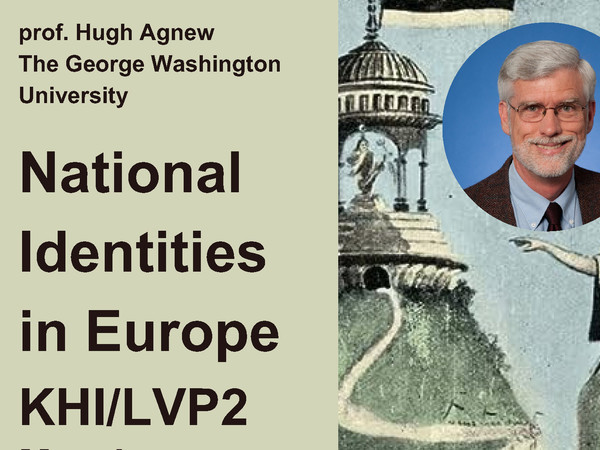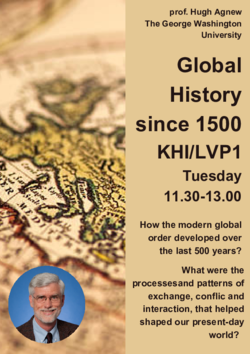- Chcete se v zimním semestru potkat se zahraničním odborníkem a procvičit si angličtinu?
Zapište si přednášky hostujícího profesora!
Prof. Hugh Agnew přijede do Olomouce z The George Washington University.
► KHI/LVP1 – Global history since 1500
► KHI/LVP2 – National Identities in Europe
Prof. Hugh Agnew povede dva semináře v rámci Fulbrightova stipendia na Katedře historie FF UP na Hradě 5:
Lectures by visiting professors National Identities in Europe | Hugh Agnew | KHI/LVP2 | 5 | Mo 9:45–11:15 | 2.10 |
Lectures by visiting professors Global History since 1500 | Hugh Agnew | KHI/LVP1 | 5 | Tue 11:30-13:00 | 1.08 |
National Identities in Europe
This is a course on the history of nationalism and national identity in Europe. Our aim will be to explore nationalism in its historical context, but to avoid seeing it through the lens of the national histories of this or that country. We will also avoid using the categories of practice of nationalist activists as our categories of analysis. While the exact starting point for such an exploration may be arguable, for this course we will "begin" roughly in the latter part of the eighteenth century, and focus on national identity and nationalism as idea, politics, and sentiment in the eras of the French Revolution and Napoleon, of nation-state building in the nineteenth century, of imperialism (including exploring racism and fascism), of the inter-war years of the 20th century, and finally end with some attention to nationalism and national identity in Europe in the contemporary era.
The course will not be primarily a lecture course, but instead will be based on discussion. As such it is imperative that each student attend every class, read the assigned material (and think about it!), and come prepared to participate in discussion. Participation will be part of your final grade. The rest of your grade will be determined by the scaffolded written assignments explained below.
Global History since 1500
This course surveys the basic contours of global history since approximately 1500, while at the same time exploring the ways in which historians approach the study of the past and how that can inform our understanding of the present. It traces the development of the modern global order over the past five hundred years, examining the processes and patterns of exchange, conflict, and interaction, which have shaped our present-day world. The course will be structured thematically, but maintain a roughly chronological progression, and it will stress an approach to global history that considers the continuities and discontinuities of change and connection.
This course will pursue two fundamental and closely related goals at the same time. It aims to increase your historical knowledge of human societies in the world and their interactions, and it aims to increase your knowledge and skills in the kind of work historians do when they "do history" analyzing textual evidence and writing expository prose, presenting and defending an interpretation of that evidence.


